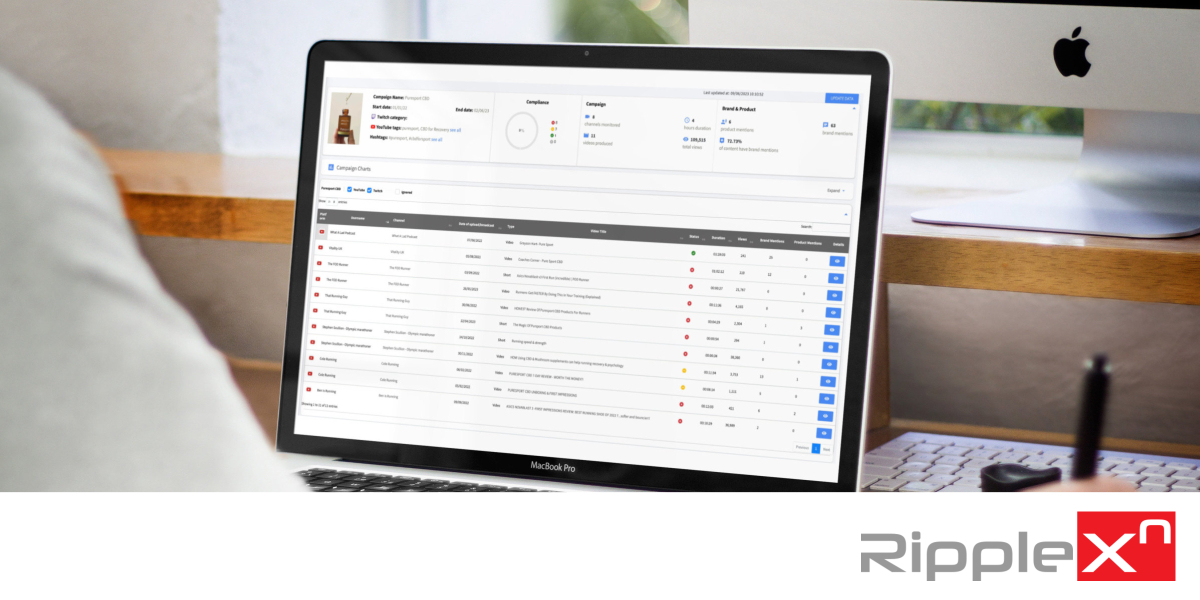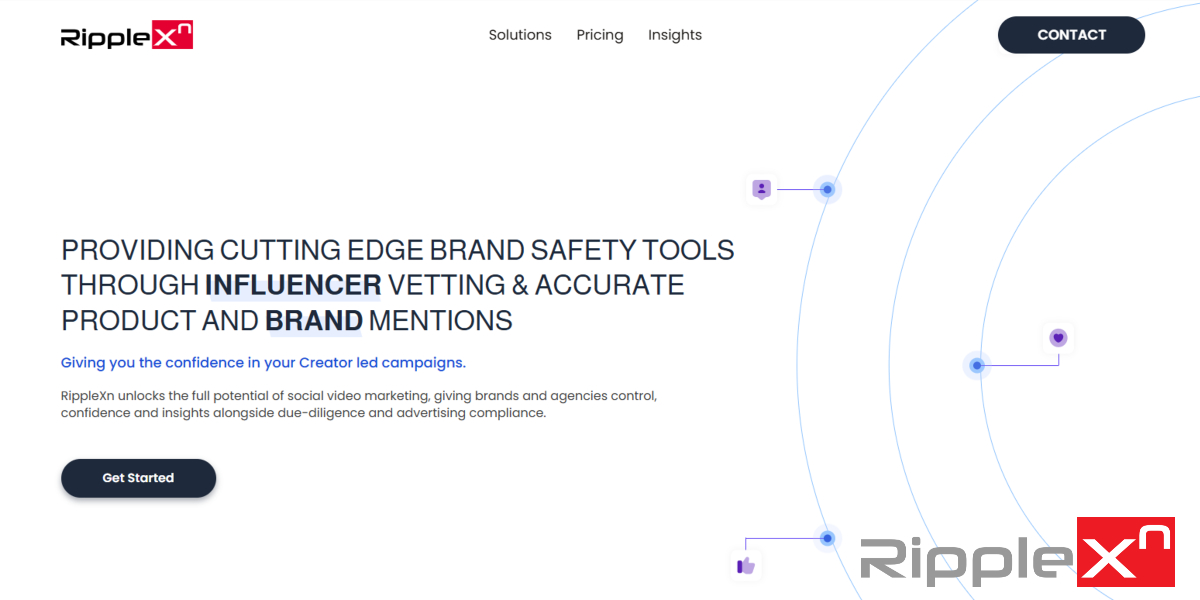In today's digital landscape, social media metrics play a crucial role in guiding marketing strategies and measuring campaign successes.
Understanding and leveraging these metrics can significantly enhance your social media performance.
In this article, we will explore the essential social media metrics you should track, and advanced metrics for deeper analysis.
Why are social media metrics important?
What are social media metrics and why do they matter?
Social media metrics are quantitative measures used to assess the performance of social media campaigns. These metrics provide insights into how well your content is resonating with a channel’s audience, the reach of your messages, and the overall impact of your social media efforts. By tracking these metrics, companies and agencies can make data-driven decisions to refine their strategies, improve engagement, and achieve their campaign objectives.
Key social media metrics to track
Which engagement metrics should you monitor?
The answer is ‘depends’! it’s highly platform specific, and varies between live, long, and short-form VOD. But let’s start with Engagement metrics. These are critical indicators of how your audience interacts with your content. The key metrics to monitor include:
- Likes: The number of times users have liked your posts. Indicates content approval and popularity.
- Comments: The number of comments on your posts. Reflects audience engagement and conversation.
- Shares: The number of times users have shared your posts. Signifies content value and reach.
- Mentions: The number of times your brand is mentioned. Shows brand visibility and engagement.
- Views: Number of times users have watched a video. This can be multiple times per user, but unlike clicks/impressions, each platform has a qualifying time before a click becomes a view.
- Watchtime: One of the most telling metrics and often not available to the marketer. This gives the cumulative duration of every view.
Is this enough?
How can reach and impressions impact your strategy?
Understanding reach and impressions helps gauge the visibility of your campaign content:
- Reach: The total number of unique users who have seen your content. Indicates the reach of your audience exposure.
- Impressions: The total number of times your content is displayed, regardless of clicks. Shows the potential impact and visibility.
What are the essential audience metrics?
Audience metrics help tailor your content to match your audience's preferences:
- Follower Growth: The increase in followers over time. Indicates brand growth and audience interest.
- Audience Demographics: Data on age, gender, location, etc. Helps in creating targeted content.
- Location: Geographic distribution of your audience. Assists in regional marketing strategies and may indicate success if you are looking for a location outcome.
NOTE: Not every platform routinely culls bot and inactive accounts, so the correlation between followers and recently posted content views is a good indicator of how many users are still active on the channel.
Why are conversion metrics crucial?
Conversion metrics measure the effectiveness of your campaigns in driving desired actions. If you have a transaction outcome, these may be important to you:
- Click-Through Rate (CTR): The percentage of users who clicked on your link. Indicates the attractiveness of your content.
- Conversion Rate: The percentage of users who completed a desired action. Reflects campaign success.
- Bounce Rate: The percentage of users who leave your site after viewing only one page. Indicates content relevance and engagement.
- ROI or ROAS: The return you achieved on your expenditure with native advertising or through influencer sponsorship or pay-by-product.
Advanced metrics for in-depth nalysis
How can sentiment analysis enhance your strategy?
Sentiment analysis assesses the emotional tone of user interactions with your brand:
- Sentiment Score: Measures the positivity or negativity of comments and mentions. Helps understand public perception and brand health.
What is social Share of Voice (SoV) and why is it important?
Social Share of Voice compares your brand's visibility against competitors:
- SoV: The percentage of conversations about your brand versus competitors. Indicates market position and brand visibility.
NOTE: All of this is only possible if you can accurately identify the products, brands and services in text, hashtags and the spoken substance of the videos.
What is in the video?
A huge blindspot for many campaigns (until RippleXn):
- Mentions: Accurately knowing about brand, product or SKUs in the spoken word in video content like YouTube or TikTok allows for calculations. Traditional metrics focus on text or meta data, and are therefore incomplete.
- Advertising compliance: Did your collaboration partner declare the commercial relationship as per advertising laws around the world.
- Contractual checks: Did they say the magic words as per the contract, “This is sponsored by ….”?
- Brand Safety: You want to know if they have talked about the product, brand or competitor, or do they talk about and have opinions on topics that are sensitive to your brand? You should know.
Best practices for utilizing social media metrics
How can you leverage social media metrics to improve your strategy?
To make the most of social media metrics:
- Optimize Content: Use metrics to determine what type of content resonates best with your audience.
- Adjust Timing: Analyze metrics to post content when your audience is most active based on time zones and times of the day when people interested in your products are most likely to be using their phones recreationally.
- Select Platforms: Focus on platforms where your audience is most engaged.
And importantly:
- Advertising compliance: are you covered, do you or your client have a liability?
- Contractual checks: Did you get what you paid for?
Keywords and custom lists: Did they say something you wanted OR, more importantly say something you didn’t!
Reference tables for metrics by platform
Social media KPI tables
Awareness KPIs
|
Metric Name |
Definition |
Platform |
|
Reach |
Number of unique users who have seen your content |
Facebook, Instagram, Twitter, LinkedIn |
|
Impressions |
Total number of times your content is displayed |
Facebook, Instagram, Twitter, LinkedIn |
Engagement KPIs
|
Metric Name |
Definition |
Platform |
|
Comments / Replies |
Number of comments or replies to your posts |
All platforms |
|
Shares / Retweets |
Number of shares or retweets of your posts |
All platforms |
|
Reactions |
Total reactions including likes, loves, etc. |
Facebook, LinkedIn |
|
Total Clicks |
Total number of clicks on your content |
All platforms |
|
Link Clicks |
Number of clicks on links from within your content |
All platforms |
|
Video Views |
Number of views on your video content |
All platforms |
|
10s Video Views |
Number of 10-second views on your video content |
All platforms |
|
3s Video Views |
Number of 3-second views on your video content |
All platforms |
|
Media Views |
Total views on media content |
All platforms |
|
Engagement Rate |
Total engagement divided by total reach |
All platforms |
|
View Rate |
Number of views divided by impressions |
All platforms |
|
Click-through Rate |
Number of clicks divided by impressions |
All platforms |
Paid KPIs
|
Metric Name |
Definition |
Platform |
|
CPM |
Cost per thousand impressions |
All platforms |
|
CPC |
Cost per click |
All platforms |
|
CPA |
Cost per acquisition |
All platforms |
|
ROI |
Return on investment |
All platforms |
Referral KPIs
|
Metric Name |
Definition |
Platform |
|
Referral Traffic |
Traffic referred from social media |
All platforms |
|
Bounce Rate |
Percentage of single-page visits |
All platforms |
Outcome KPIs
|
Metric Name |
Definition |
Platform |
|
Conversion Rate |
Percentage of visitors who complete a desired action |
All platforms |
|
Sales Revenue |
Revenue generated from social media efforts |
All platforms |
|
Lead Generation |
Number of leads generated through social media |
All platforms |
RippleXn's Secret Source
|
Metric Name |
Definition |
Platform |
|
Keyword mentions |
Can be Brand, Product or Service, abbreviations, etc. |
YouTube, TikTok, Instagram, Facebook, Twitch |
|
Watch-words and phrases |
Alert words requiring contextual checks. |
All platforms |
|
Sentiment over time |
Sentiment analysis during the course of a livestream |
YouTube, Twitch. |
|
Share of voice |
How many times your brand or product is mentioned compared to competitors |
All platforms |
Why RippleXn?
RippleXn can simultaneously watch thousands of hours of social video. It can harvest the text and descriptions, but most importantly it can understand the spoken word.
RippleXn’s tool can solve these problems and provide visibility on the advanced metrics for the campaign and the legal aspects of managing the campaign.
What should I do next?
Talk to the RippleXn team at hello@ripplexn.com or via the onsite forms to discuss how to accurately report on your social media campaigns and advertising compliance.






